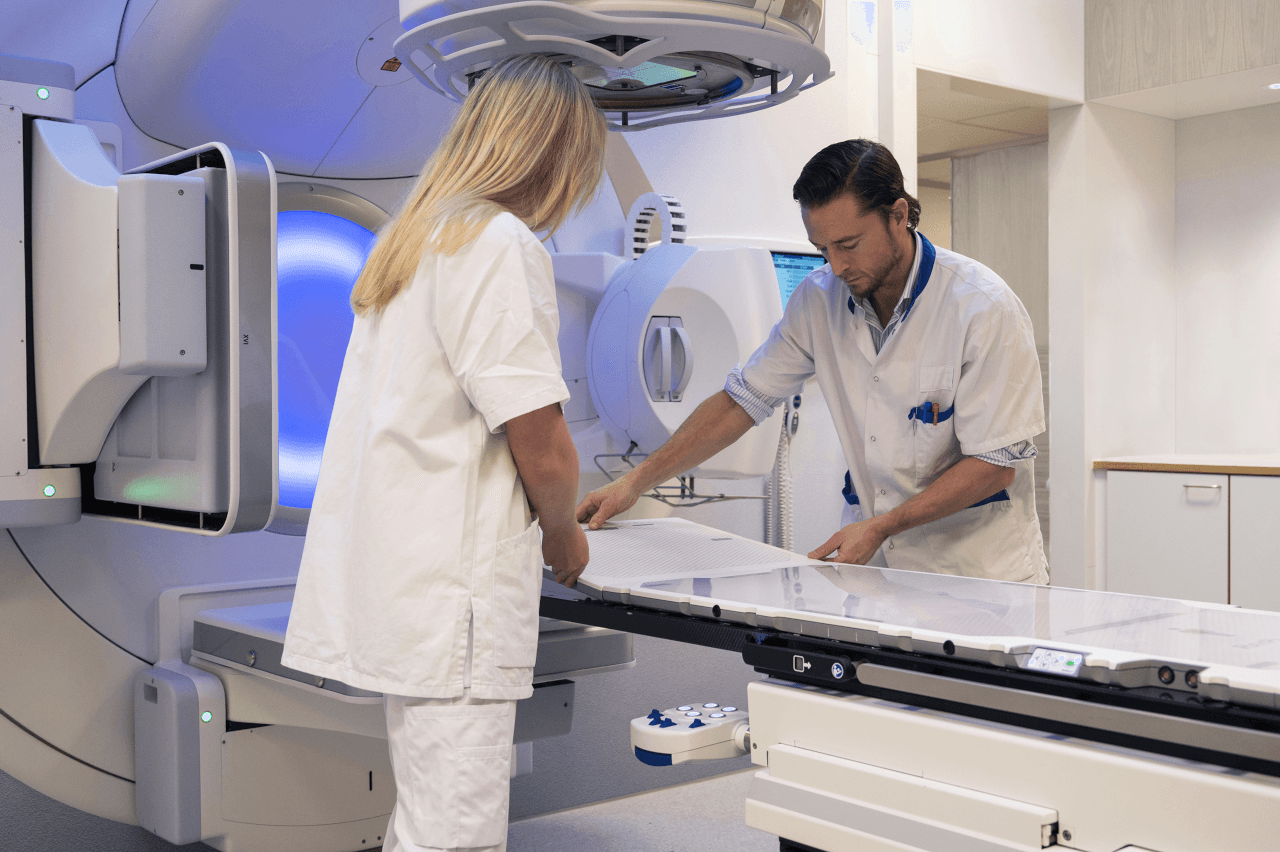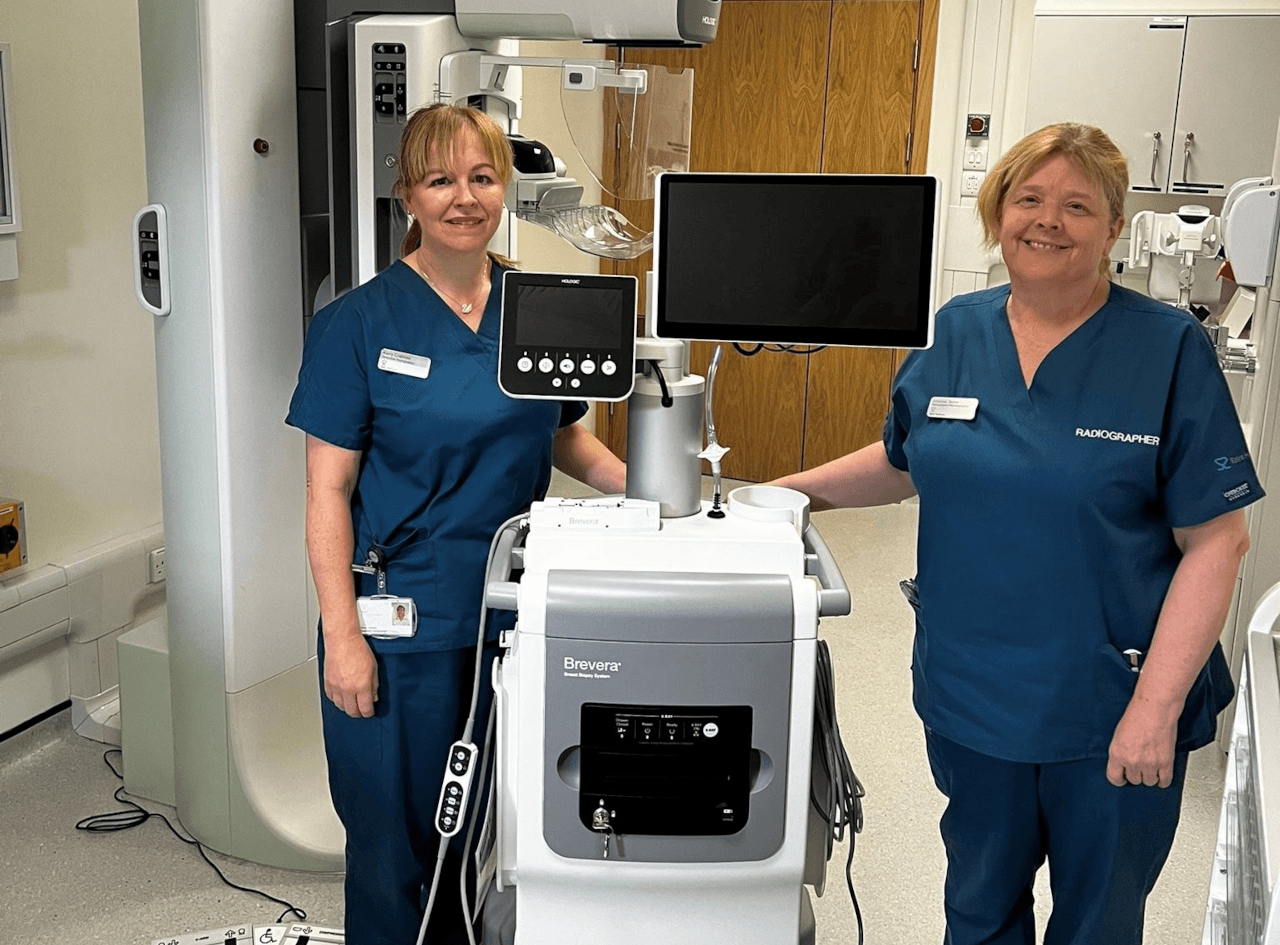Precision Study begins as prostate cancer is treated in three radiation sessions

Edinburgh Cancer Centre has recently begun treating prostate cancer patients within the framework of the Precision Study. Patients receive only three radiation doses, with the Raypilot System used as a complement to ensure accurate motion control during treatment, thereby minimising potential side effects. The aim is to demonstrate that three sessions work as well as five in terms of both cancer eradication and the degree of side effects.
The PACE-B study published in 2024 showed that stereotactic body radiation therapy with five radiation sessions is just as effective in curing cancer as traditional treatment involving 20 to 40 sessions. The Precision Study aims to further streamline treatment while reducing side effects and improving patient convenience.
The treatments in the study are carried out using the Raypilot System from Micropos Medical, which enables real-time monitoring of organ movement. This system allows for urethra-sparing techniques and tighter radiation margins.
The study includes 100 patients across multiple clinics in Europe and the USA and is led by Professor Duncan McLaren at the Edinburgh Cancer Centre. His aim is to make prostate cancer treatment more comfortable for patients and improving their quality of life after treatment.
“The goal of the Precision Study is to ensure that treatment with three radiation doses does not lead to greater side effects than those observed in the PACE-B study. I am confident that we can demonstrate effective cancer treatment with fewer side effects,” explained Professor McLaren.
Micropos Medical MD Thomas Lindström said: “Our customers are interested in developing and improving healthcare, always with patient quality of life in focus. At the same time, healthcare providers across the western world are striving to reduce treatment times and enhance both quality and efficiency. This study could contribute to such progress, benefiting all stakeholders: healthcare providers reduce costs while improving care and patients gain a better quality of life.”
The first conclusions from the Precision Study are expected in one to two years, which will be followed by a further five years of patient follow-up before final results can be presented.
Picture: The Raypilot System’s real-time tumour tracking is being used in the Precision Study.
Read this report on page 6 of the May 2025 issue of RAD Magazine.


